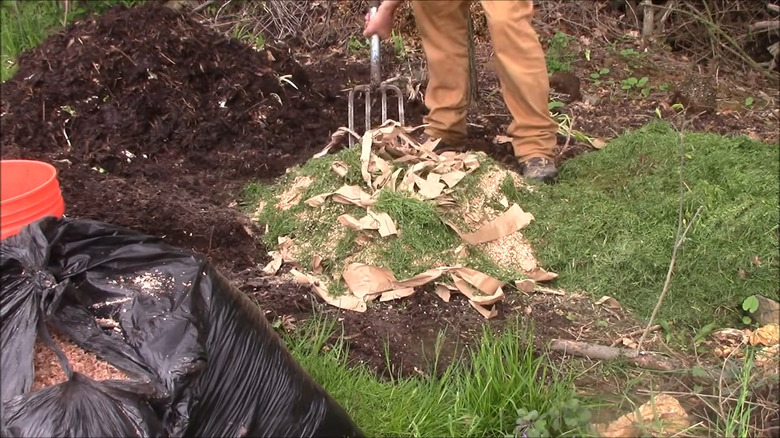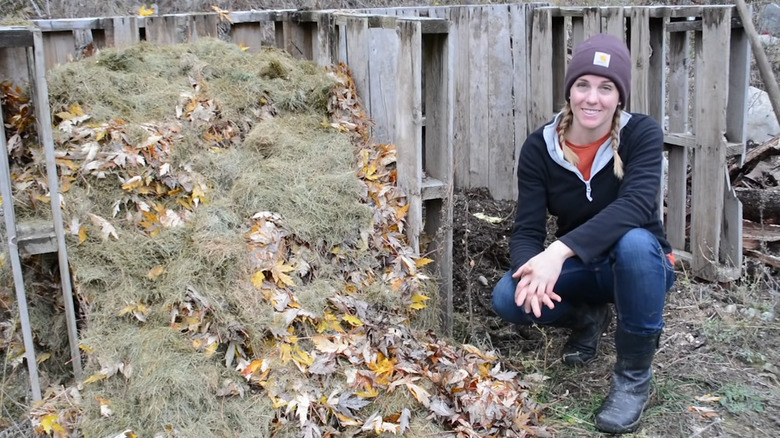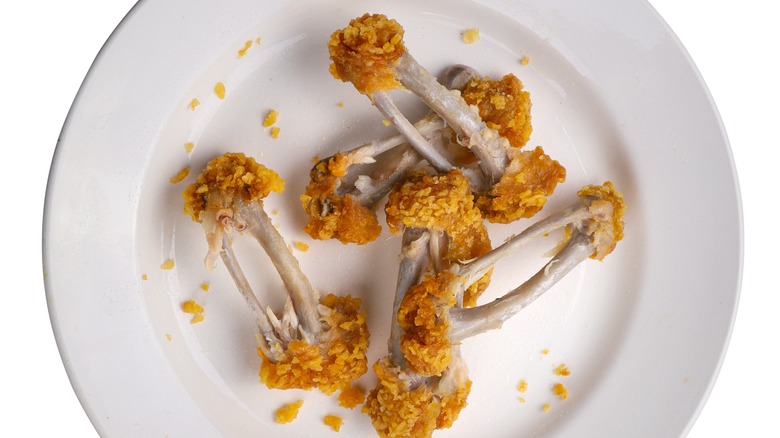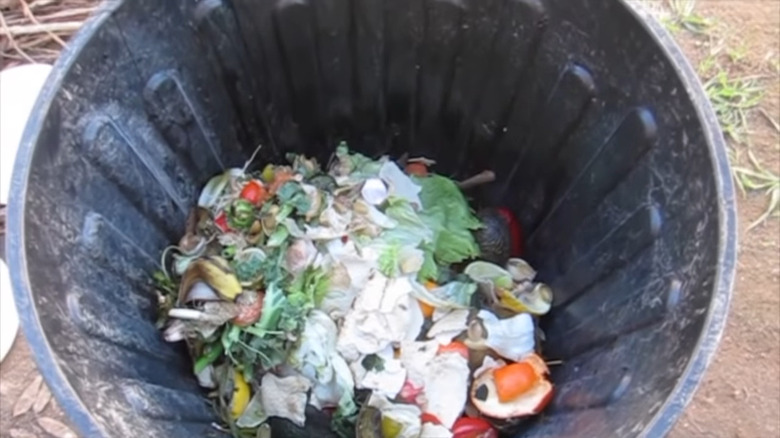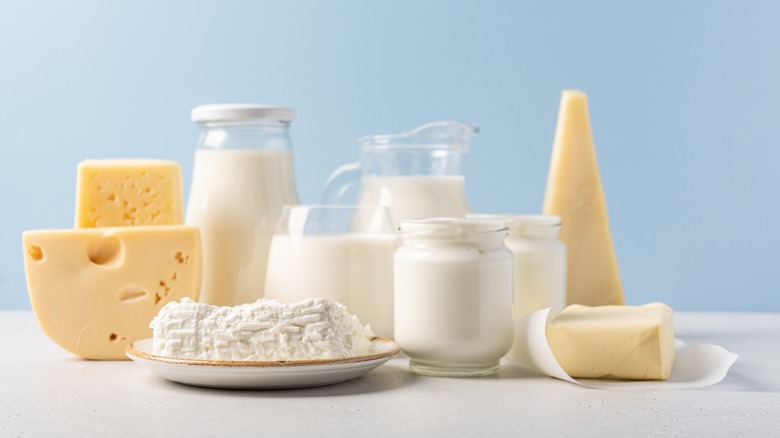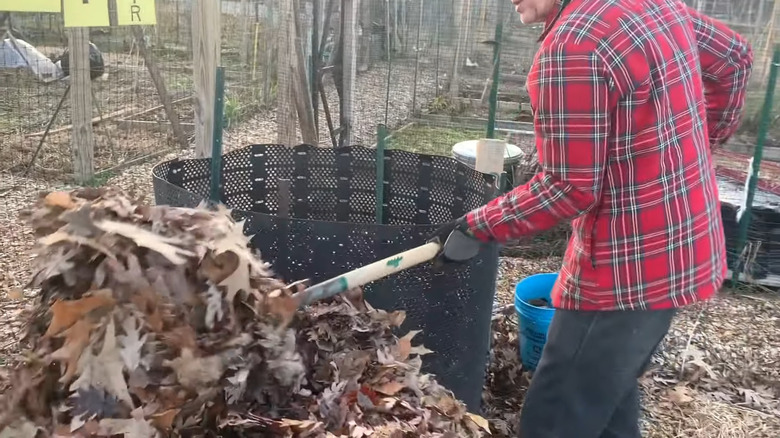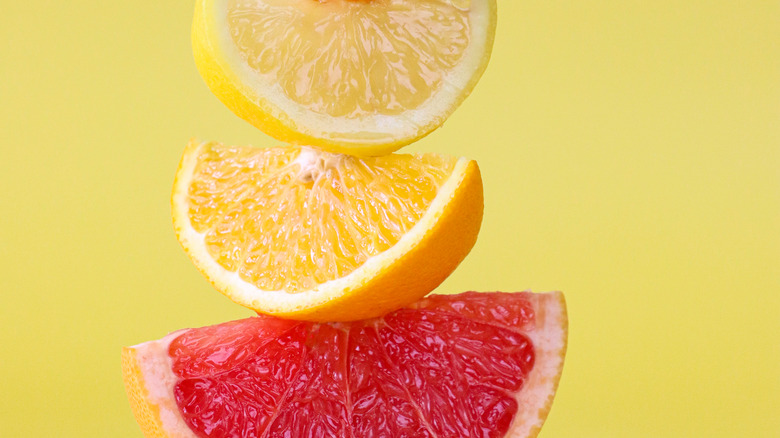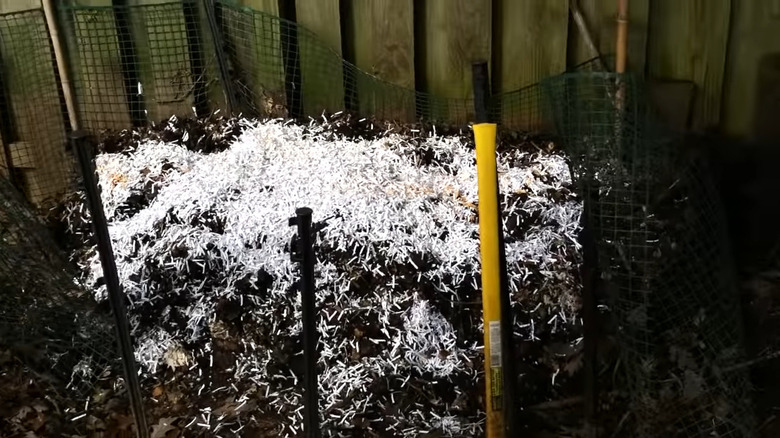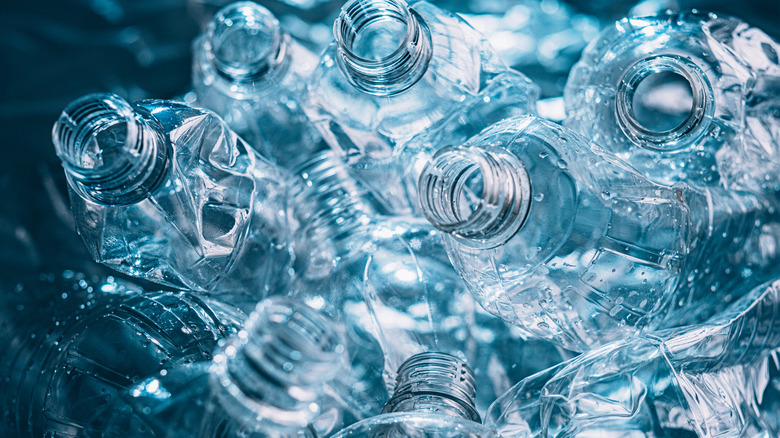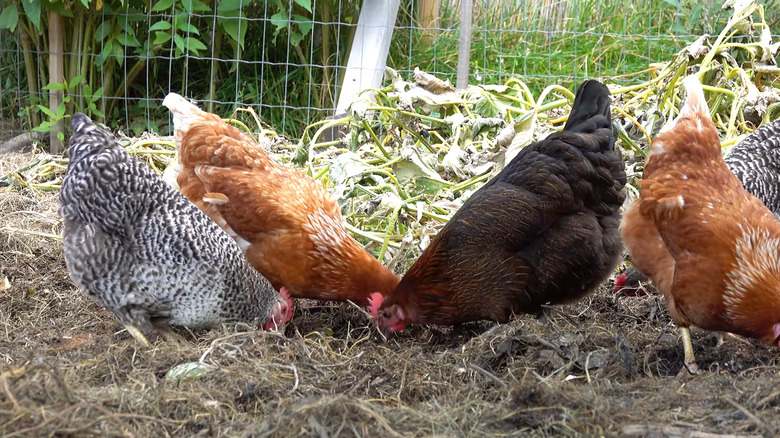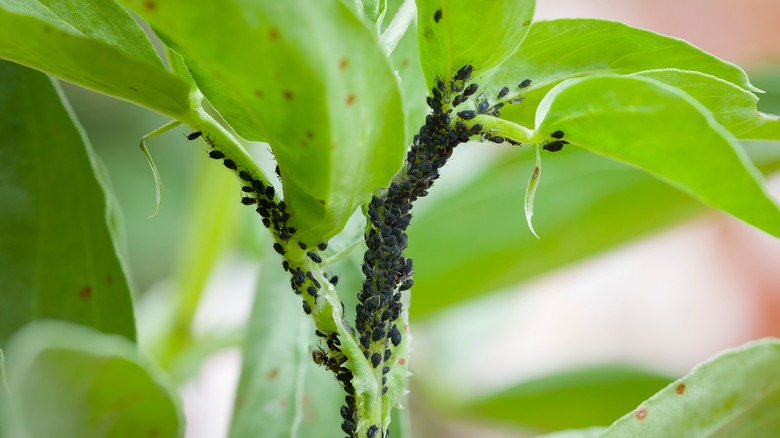Just Started Composting? Here's What You Should And Should Not Add To Your Compost
If you've just started composting, you're on your way to creating nutrient-rich soil for your garden. It's a thrifty and sustainable way to reuse the waste from your garden and kitchen. According to the United States Environmental Protection Agency, composting is a natural decomposition process that requires a mixture of carbon-rich organic matter along with nitrogen-rich organic matter. In addition to keeping these two types of refuse in balance, you will need to provide water and air to your compost pile or bin. With these ingredients, the compost will transform over time into rich soil that you can use for outdoor and indoor planting as well as mulching.
Knowing which materials to add to your compost is a vital step in the process. Similarly, it's important to understand that other materials should not be deposited in the pile. Green matter like grass clippings and vegetable peelings contribute nitrogen, while brown matter such as dead leaves and shredded cardboard offer carbon for your compost. On the flip side, you should not introduce meat scraps and dairy leftovers or inorganic matter like plastics and glossy paper. Armed with a little knowledge, you'll produce a rich growing medium at little or no cost, and your garden vegetables and flowering plants will show the benefits.
You should compost brown yard waste materials
Brown organic materials provide carbon for your compost mixture, and they offer bulk and structure that contribute to the vital air circulation in the pile. This type of refuse includes dead leaves as well as twigs and small branches that fall from the trees in your yard. Similarly, straw, hay, cornstalks, untreated wood chips, and sawdust contribute carbon to the compost. Brown compost materials also include shredded, uncolored newspaper and cardboard.
You should create a mixture of brown and green organic materials in your compost pile or bin, with carbon-rich browns taking up most of the space. Shoot for a 4:1 ratio of browns to greens. The brown materials are drier than the greens, and break down more slowly. These qualities create air pockets for the compost pile, resulting in a successful decomposition process.
One way to ensure a productive mixture of compost ingredients is to alternate brown and green layers. Medium-size dead branches can be laid out as a brown-matter base. Then, alternate 6-inch high layers of brown materials with 2- to 3-inch layers of greens. Keep in mind that large brown materials should be chopped or shredded into small pieces to aid in decomposition.
You should not compost meat scraps
A successful compost pile turns organic waste into rich soil through the process of decomposition. To accomplish this objective, you don't want to create a stinking mess that attracts insects and rodents. That's exactly what can happen if you place either raw or cooked meat and bones in your compost pile. The same is true of grease, fat, and blood from meat and poultry. In addition to meat scraps, seafood scraps or fish bones should never be disposed of in your compost.
Meat, grease, and seafood products emit a foul odor as they decompose. This will make the area around your compost pile distinctively unpleasant, and the compost will attract flies, wasps, and maggots.
Some localities have laws that prohibit composting meat, fish scraps, and bones. The legal rationale reflects an effort to keep rats, raccoons, and other scavenging mammals from infesting gardens and communities. Additionally, there is a risk of developing harmful bacteria from decomposing meat. These include E. Coli, Salmonella, and Listeria which may be transmitted to nearby plants.
Do add green materials to your compost, including kitchen scraps
When it comes to composting, the term green does not always refer to color. Although these materials include grass clippings and the green leaves from freshly pruned plants, they also include kitchen scraps. Save the peelings, stems, and cores that you discard from fruit and vegetable prep and deposit them in a countertop compost container. Then, add these organic, kitchen-waste materials to the compost pile. In the green category, you can add coffee grounds and loose tea (or compostable tea bags), along with eggshells. But you should not deposit cooked vegetables or food scraps that have been coated in oil or butter.
Green materials contribute the necessary nitrogen for the decomposition process, and they provide most of the nutrients that the composted soil will offer to your future garden plants. Keep the organic matter in balance by ensuring that brown materials fill most of the space in the compost pile. If you have too much green matter, your compost pile might develop an unpleasant odor. On the other hand, too much brown matter keeps the pile from heating up, and the decomposition process takes an overly long period of time.
Dairy products should not be composted
When you're saving kitchen scraps for the compost pile, you might be tempted to toss all your leftovers into the countertop collection container. But milk, cream, butter, yogurt, cheese, and ice cream should not go into your compost pile.
Dairy products contain a high degree of moisture and fat, making them unfit for decomposition. The fat attracts rodents, insects, and unwelcome varmints to your compost pile. Additionally, the fat from dairy products forms a coating on the green and brown pieces of organic matter, preventing the microorganisms from breaking down the materials to create soil. Fats in the compost bin can significantly slow down the decomposition process.
The high moisture content prevents dairy products from having the texture and bulk to ensure air circulation in your compost mixture. Instead, they can create a slimy mess. In addition to these problems, rotting dairy products emit a foul odor, making your compost pile a most unpleasant place to visit.
You should supply your compost with air and water
The decomposition that transforms your compost into rich soil is an aerobic process. That is, it takes place in the presence of oxygen. Microorganisms do all the work for you, and they need both air and water to thrive and break down the organic matter. That's why it's important to turn your compost pile regularly with a pitchfork. This tumbling action introduces oxygen to the mixture. On average, you should turn the compost pile once a week.
Try to maintain a balance between too-dry and too-wet conditions in your compost pile. If the pile is too dry, the decomposition process slows down. Alternatively, an overly wet environment causes restricted air flow. Consequently, this anaerobic environment halts the decomposition work of the microbes that thrive in air. Bacteria that don't like air will take over, resulting in a decomposition process that produces lots of methane, a gas that is bad for the environment.
Avoid composting highly acidic fruits and vegetables
The acids in some foods can kill the good bacteria in your compost pile. For this reason, you should avoid composting highly acidic kitchen scraps. The list includes tomatoes, pickles, and pickle juice. Similarly, the peelings, juice, and pulp from citrus fruits should be composted only in limited quantities. In fact, it's a safe practice to place the kitchen waste from oranges, grapefruits, lemons, and limes in the garbage rather than in the compost pile.
Successful composting relies on the work of good bacteria. The desired end result is a nutrient-rich soil that becomes a productive growing medium for your garden. Most of the decomposing activity is carried out by aerobic bacteria that employ the chemicals from their bodies to break down organic matter. As they carry out this function, the bacteria emit heat, causing the compost pile to get warmer. This is a sign of healthy decomposition. Considering the important role of bacteria in the decomposition process, you'll want to exercise caution when adding compost materials that might kill them. To be on the safe side, you should add acidic food scraps only sparingly, or not at all.
You should add some types of trash paper to your compost
While yard waste and kitchen scraps contribute most of the nutrients for your compost, shredded paper is a useful addition. It's considered a brown ingredient that adds bulk and texture, ensuring adequate airflow throughout the pile. Additionally, the carbon in paper contributes a vital element for compost.
Some gardeners avoid composting newspapers, magazines, and junk mail due to concerns about the ink on the paper. Although it is important to keep glossy paper out of your compost pile, it's safe to recycle newspapers and other matte paper with black and white or colored ink; modern inks are generally nontoxic. Be sure to shred the material before you add newspapers or other types of paper to your compost pile. Otherwise, you'll end up with a soggy mess that blocks the airflow through your mixture.
Similar to paper, you might want to add cardboard as a brown ingredient for your compost. If you do this, it's important to observe a few precautions. Compost only uncoated cardboard, not the type that is shiny due to a plastic coating. Don't compost cardboard with heavy dyes for bright coloration. Be sure to remove the labels and packing tape from cardboard boxes. Additionally, it's important to break down the cardboard and shred it into small pieces before tossing it into the compost pile.
You should not add plastic materials to your compost
As you continue on the composting journey, keep in mind that your objective is to transform organic matter into nutrient-rich garden soil. When you're gathering scraps from the kitchen waste bin to make a deposit in your compost pile, it's important to separate the compostable materials from the non-compostable items. Glass, plastic, styrofoam, rock, and stone materials should not go into the pile, as they will not decompose. Even bioplastics that are made from renewable sources are not suitable materials for a compost pile. On top of that, many materials that are labeled as 'home-compostable' do not fully break down in the home-based composting process.
Plastic is a notorious contaminating material for compost piles, and plastics seem to be everywhere. Keep in mind that many paper and cardboard products have a plastic coating and should not go into the compost bin. These include paper plates and cups. Additionally, the ubiquitous plastic bags, cellophane wrappers, and plastic straws in our environment should not be composted. Even the 'biodegradable packaging' from some food products should be left out of the compost pile.
Some types of animal manure are beneficial for composting
Pets and farm animals with a herbivorous diet produce manure that can be added to your compost. The substance might be smelly, but it provides significant quantities of phosphorus, nitrogen, potash, and calcium. Additionally, manure contains good bacteria that go to work breaking down the organic matter in the compost. It's considered a green composting material, and manure balances out the brown materials such as dead leaves and shredded paper. Manure from guinea pigs, chickens, rabbits, horses, cattle, and sheep contributes beneficial elements for compost.
Combine the right type of manure with other materials in a compost pile, and the high nitrogen level will help the pile to heat up. This encourages the aerobic bacteria to speed up their decomposition activities, yielding results in a timely manner. It's best to mix manure with materials like straw, wood chips, or shredded cardboard. Using a pitchfork to toss the ingredients together, you can create a mixture that offsets the high nitrogen content of manure and promotes healthy decomposition.
Do not deposit manure from dogs, cats, or humans in your compost pile. These types of manure contain parasites and pathogens that contaminate the compost.
You should not add weeds or clippings from diseased plants to your compost pile
When you're pruning shrubbery and removing old plants from the garden, you can toss much of the yard waste into your compost bin. But harmful materials that find their way into the compost can contaminate your future plantings. This includes the seeds from weed plants as well as disease-causing microorganisms and parasites. Never compost weeds that have been killed with a chemical herbicide. It could make your compost toxic to plants and therefore useless as a planting medium.
Technically, weeds are green materials that break down easily. But the roots and seeds of weeds can survive the composting process, and you'll end up with a weed infestation when you apply the finished compost to your garden. If you want to compost your weeds, you can lay them out in the sun to dry completely. This will take approximately 2 to 3 weeks. Alternatively, you can soak weeds in a covered bucket of water for a month. These methods should kill the seeds and roots of the weeds to make them compostable.
The same logic applies to clippings from plants that show signs of disease or parasitic infestation. Adding these materials to your compost can ruin the entire batch. When you spread the finished compost, you might introduce pathogens and microorganisms that spread diseases throughout your garden. It's best to discard the yard waste from diseased plants in the garbage.
